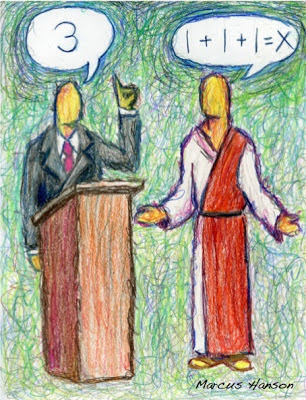The music of worship has been a rather volatile subject in the church for centuries. Mainly because so many people are trying to apply principle where the Bible does not. So I think the best way to deal with the subject is to start with what scripture actually reveals.
Music is part of worship (1 Chronicles 6:31-47, 2 Chronicles 29:27-28) Do not confuse this statement with the idea that music is worship in itself. Many try to do this in practice, since it’s an easy way to provoke a good feeling, but as we already revealed that’s not the ultimate focus of worship. While one can honor God, offer thanks to God (Psalms 95:1-2, 147:7) or even learn of holiness via music. We should not limit such expressions to God via music alone anymore than we should limit our expressions of love for our families to a single way. Plus, knowing of holiness does not make one holy in itself either. Our pursuit of holiness must eventually lead towards actual transformation.
Music can be a learning tool (Colossians 3:16)
Music can be used to prophesy (1 Chronicles 25:1-31)
Instruments can be used in music (1 Chronicles 15:16, 2 Chronicles 7:4-6) For some this may seem like an odd fact to lift up. However, there have been denominations that have forbad the use of instruments in worship, deeming them worldly; so all music had to be performed a cappella. This idea is not Biblically sound at all, for instruments are mentioned frequently in the Bible. Keep in mind that many of the ancient words used to designate instruments in the Bible are quite vague. So translating them precisely to a specific instrument is often impossible. So trying to say one instrument is okay, where another is evil based on weather it’s mentioned in the Bible is not a valid argument.
Even the prudent and wise should have music in their lives (Ephesians 5:15-20)
Music can be exuberant (Psalms 33:1-3, 65:13, 66:1-4, 71:22-23, 81:1-2, 98:1-6) In all these verses listed musical references are placed in conjunction with the action of shouting. So it seems safe to say that the idea that church music has to be dull and dispassionate is not Biblically sound. If one is going to use music to praise God, then praise him sincerely and passionately as if you mean it, not as a lifeless obligatory action.
Music should be used to Praise God (Psalms 92:1-3, 149:1-5)
 |
| Audio Offering |
With all this being revealed let’s, have a look at these aversions concerning music. Most emerge from the idea that righteousness and being dispassionate are synonymous. Many in the church both past and present have made it their mission to stamp out everything that provokes a pleasant feeling, like music and dancing. While feeling good is not the goal of worship; it shouldn’t be interpreted that it’s forbidden. (Psalm 68:3) Just do a keyword search of the word rejoice or Joy in the Bible. You will get hundreds of hits on both. Joy is even one of the gifts of the spirit listed in Galatians 5. It’s not that feeling good is bad in itself, it’s what you are seeking joy from that can make it good or bad; for good and evil lies in the hearts of those performing the music, not the music itself. Those who disallow people from finding joy in God and his righteousness are ultimately just driving people towards seeking joy in the sinful nature of the flesh. If anything, it’s those who try to destroy all feelings, making no distinctions between those of the fleshly sin nature and those of the spirit, who are truly guilty of something. They are guilty of extinguishing the spirits fire. (1 Thessalonians 5:19)
In the end, the Bible is pro music. While Biblical era music may have sounded different from what it does today, scripture never makes any kind of judgement or commands on how it must sound other than it should glorify God and his truth.



























